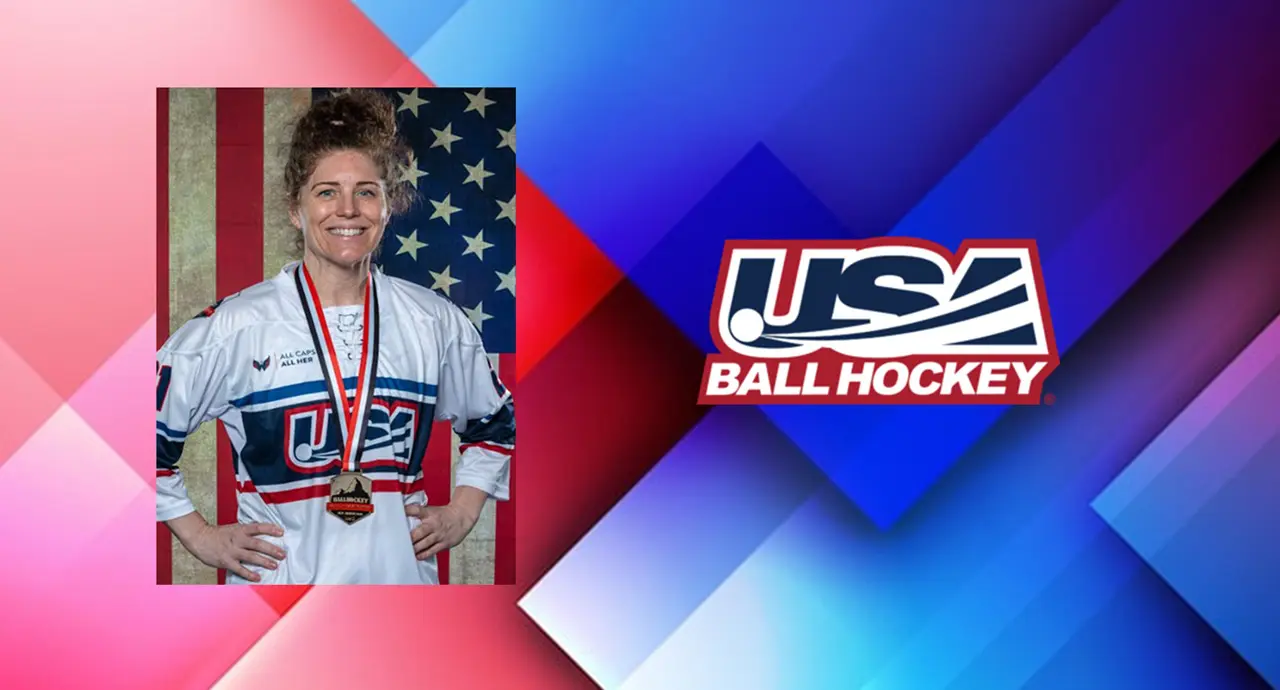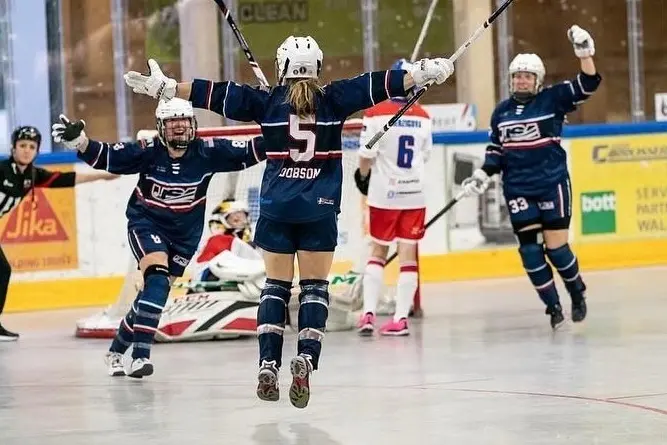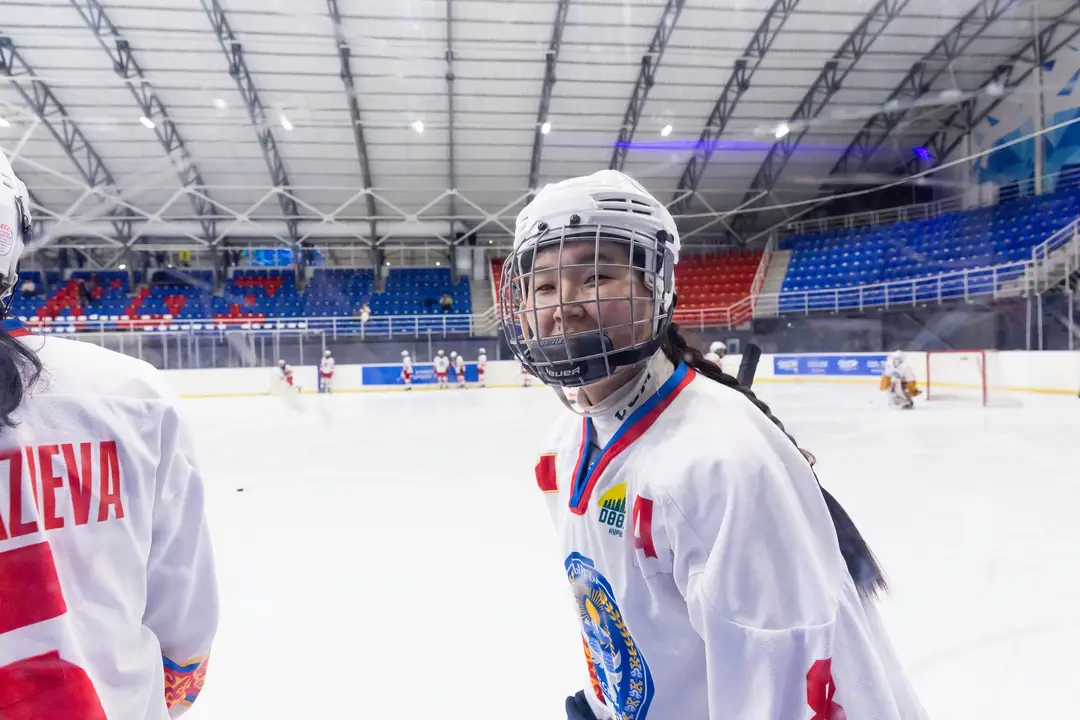As women’s ice sledge hockey continues to rise in importance and relevance, Peggy Assinck is truly one of its greatest champions. Currently based in Vancouver, she has participated in the sport for 19 years, while spending the last six as a member of the Canadian national women’s team.
Currently an assistant captain on the national team, Assinck’s growing list of accomplishments is impressive. Of note, she obtained the silver medal in the landmark International Paralympic Committee (IPC) Women’s World Championships in November 2014. It was part of a 2014 filled with several milestones for Assinck.
“I am very excited about the growth of the game in the last many years. Playing in last year’s IPC-sanctioned Women’s World Cup Event was the highlight thus far and really gives me excitement about the growth of sledge in the years to come and the eventual incorporation of Women’s Sledge Hockey into the Paralympics.
I have been on this Women’s Team since the first Canada vs. USA game in 2007 and everyone involved has worked really hard to continue to make the elite team successful and make a team that girls/women want to work towards being a part of.”
Of note, the 2014 Sochi Paralympic Winter Games represented a great milestone with regards to her research. Working with a group of researchers at the University of British Columbia’s International Collaboration on Repair Discoveries (ICORD) spinal cord injury research centre, she had the opportunity to engage in cardiovascular testing on many athletes with spinal cord injuries participating at the Games. With Dr. Krassioukov’s team, the focus of the study involved autonomic functions in Paralympic athletes and this was Peggy’s first experience being involved in clinical research.
When not on the ice, she can be found working on her PhD in Neuroscience in Dr. Wolfram Tetzlaff’s laboratory at ICORD. Originally from Ontario (she still cheers for the Ottawa Senators), she relocated to the Pacific Coast after earning her BSc in disciplines such as Neuroscience and Physics.
Born with Spina Bifida, a birth defect that affects spinal cord formation, Assinck endured many reparative spinal cord surgeries as a youth. It has proven to be a motivational factor in her research.
“I am a Neuroscience PhD Candidate at the University of British Columbia. My research is funded by the Canadian Institutes of Health Research.
My thesis work involves trying to better understand how cells within the spinal cord contribute to repair after a spinal cord injury (SCI). In addition, some of my work focuses on whether the transplantation of cells into the spinal cord injury site could become a potentially effective therapy after SCI. I spend most of my time working on the microscope and trying to answer basic biology problems specific to SCI.”
The dedication to SCI research includes the workings of the central nervous system to looking to find ways to improve motor, sensory and autonomic functions. Assinck is devoted to understanding the biological changes that take place after SCI. Deciphering how the host’s cells contribute to repair after injury comprises part of her efforts. Determining the use of cell transplantation as a potential therapy for SCI is another goal.
Dedicated to helping to run programs for beginning players, it is testament to Assinck’s compassion and her contributions as a hockey humanitarian. Facilitating development programs is part of an admirable effort to raise awareness of the sport in the community, while utilizing sport as a positive way to build self-esteem.
For an individual as compassionate as Assinck, the chance to participate in coaching and work with youth with disabilities is a labor of love, which cultivates her lifelong love of sport. As a side note, Assinck is also an accomplished speaker, speaking to health care professionals about the positive impact that sport can play in rehabilitation through the Canadian Paralympic Committee.
“Women’s Sledge Hockey of Canada is also working hard to make more development opportunities for women in sledge hockey across Canada, which is very exciting. When I started playing, very few girls were involved in the sport and now I see a couple of girls on most teams.
At the grassroots level, learning how to play as part of a team, working towards personal goals, connecting with other people with disabilities, and being involved in competition are among the many things I attribute to my involvement in Parasports. When I think about all the great things that being involved in Parasports has given me, it makes me happy to see so many girls/women who have sledge hockey as part of their lives.”
Among other efforts in the community, she was the recipient of an award from the Rick Hansen Foundation in 2014. It was part of a ceremonial visit to the Blusson Spinal Cord Centre by Her Royal Highness, Sophie, Countess of Wessex. Learning about ICORD research, the Countess joined Rick Hansen to present Assinck and colleague Mustafa Hasan with Difference Maker Awards.
a ceremonial visit to the Blusson Spinal Cord Centre by Her Royal Highness, Sophie, Countess of Wessex. Learning about ICORD research, the Countess joined Rick Hansen to present Assinck and colleague Mustafa Hasan with Difference Maker Awards.
“It was pretty amazing! It was actually a surprise for me, I did not even realize I got nominated (for my contribution toward SCI research); I just got asked to attend this important event at the Blusson Spinal Cord Centre. It was an honor to have the award presented by The Countess of Wessex and Rick Hansen.
Since I was quite young, I always looked up to Rick Hansen as many people with disabilities do across Canada. It was great to have the opportunity to meet him and chat with him about some of my research endeavors. He is excited to see people with disabilities getting involved in conducting research.”
For an individual as remarkable as Assinck, her research efforts, sporting endeavors and genuine care towards improving the quality of life has made an exceptional difference. Her commitment has instilled positive values to all who come across her, setting a standard of excellence. While women’s ice sledge hockey may have started in obscurity, women like Assinck are helping to signal the flourishing of an exciting new era, catalyzing the sport.
“All quotes obtained first hand unless otherwise indicated”
Special thanks to: Cheryl Niamath
Photo credits:
http://icord.org/news/2014/09/hrh-the-countess-of-wessex-visits-icord/
http://icord.org/about/newsletters/the-icordian-spring-2014/
[adrotate group=”1″]
Related Articles
Categories
Recent Posts
[adrotate group=”2″]





